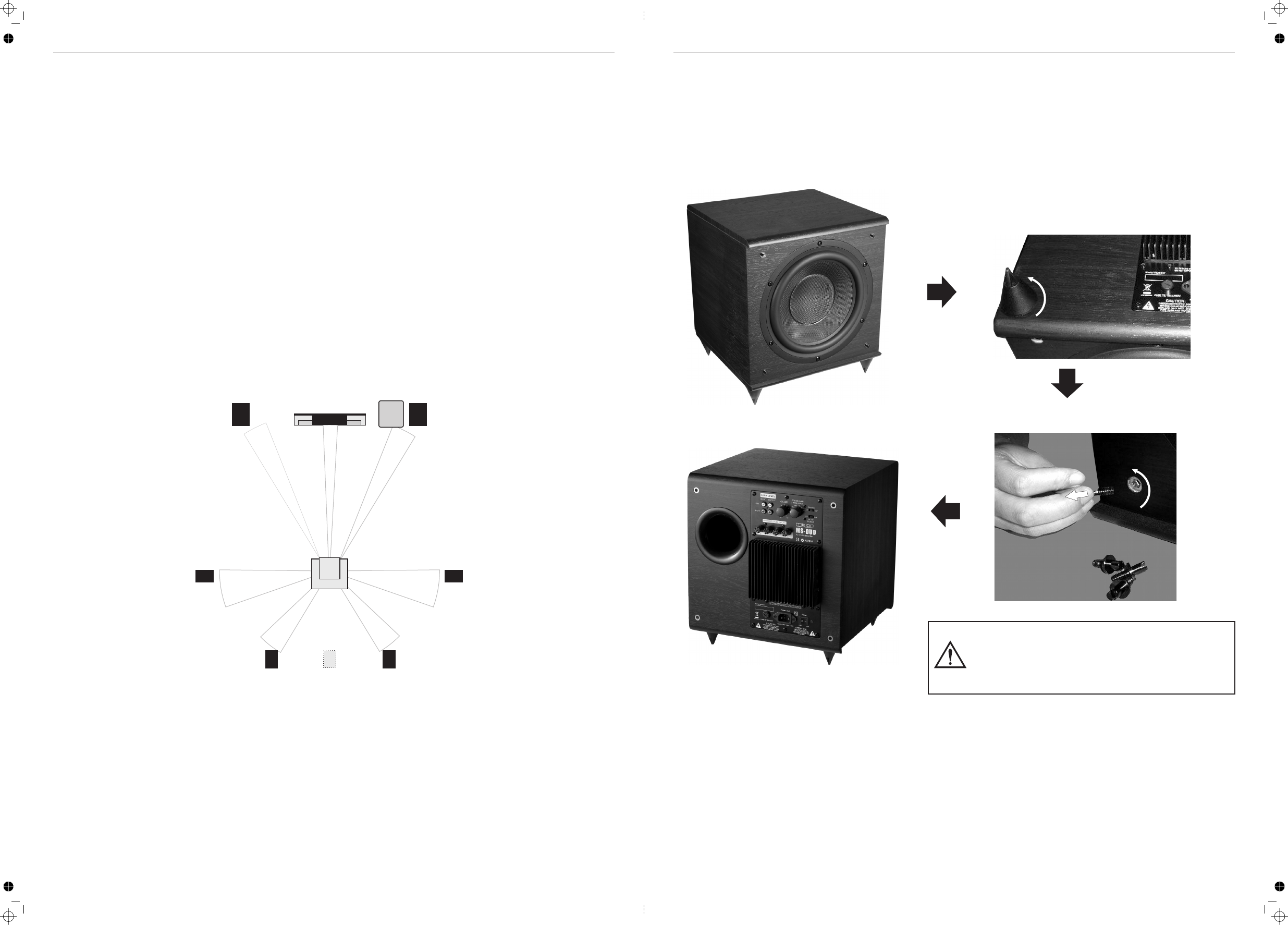
Low Pass Filter:
Low-level Listening
Testing the system
The subwoofer crossover point should be set having regard to the size and low frequency extension of the main speakers. The role of
the subwoofer is to extend the bass response of the system, not to increase the overall bass level. If the loudspeakers are large the
crossover should be set low, a value around 55 Hz is a good place to start. With smaller speakers this can be increased, up to 85Hz for
the small bookshelfunits. As always the finalvalue is determined by listening.
Our ears are far more sensitive to midrange frequencies (2-5 kHz) than bass frequencies. Very low bass and especially percussive
bass is ‘felt’ rather than heard. At low sound levels bass frequencies appear to attenuate faster than midrange and treble. As the level
increases this bass roll-off decreases. Occasionally we may wish to listen to a normally loud piece of music at a low level but with
retention of thebass information.
The simplest way to test the system is to play, at a moderate level, music with deep consistent bass. Switching the subwoofer on and off
should cause change of the depth of bass, and the ambience will also alter. If there is a significant change in bass volume, or a
noticeable step in the bass response, or an increase in coloration when the subwoofer is playing, the setup needs to be refined. By
selecting different crossover and volumesettings, you will be ablereadily to identify the mostfavourable combination.
Stereo Reproduction
Left Surround
Left Back
90º
110º
135º
150º
22º
30º
LFE
Centre
Right Back
Right Surround
Right Front
Left Front
Dolby Labs Recommended 7.1 Placement
(Single Back channel for 6.1
9
12
The MS-DUO
operate the subwoofer with the drive unit firing downwards (amplifier at the rear) or firing forwards
.
To change the mode from down firing to front firing:
subwoofer is supplied in front-firing mode.
You can (amplifier beneath the
subwoofer)
The subwoofer is supplied in front-firing mode.
Remove the grille from the front of the loudspeaker Place a towel or similar on the ground.
Invert the subwoofer and place it carefully on the towel.
Remove the four cone feet from the subwoofer
Unscrew the four pegs that held the grille in place
Screw the cone feet tightly into the holes that held the pegs
Stand the subwoofer on its feet as shown in the illustration
b
c
d
Which mode should I use?
If you have a deep shag pile carpet, there may be insufficient ventilation for the amplifier and we do not advise you to use this
mode of operation.
Although the Subwoofer controls are designed to be “set and forget”, if you are likely to adjust the controls often, down firing
mode is easier for day to day use.
You should experiment with different operating modes to see which one you prefer. Here are some notes which may help you.
Front firing mode keeps the drive unit away from walls and offers a better focussed sound with lowest bess distortion.
If your floor is a hard wood or stone floor, front-firing will offer advantages especially if you are using a suspended wood floor.
In front firing mode the amplifier faces downwards so there are some potential disadvantages:
!
!
!
!
e
Down Firing Mode
Front Firing Mode
In down firing mode the grille must be removed
Store the grille and the pegs safely for future re-use.
Changing the Operating Mode from Front-Firing to Down-FiringMS-DUO
Reverse the procedure to change the mode.
5










